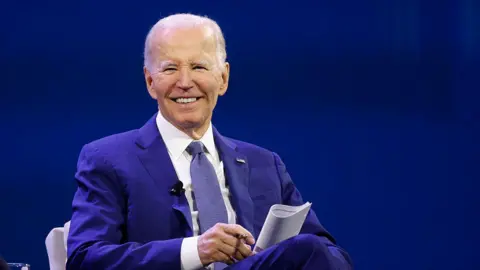In November 2024, a federal jury found Hankison guilty of civil rights abuses related to the raid conducted on Taylor's home. The maximum penalty for his conviction could have been life, yet his 33-month sentence comes in the context of contrasting political pressures. Following Hankison's conviction, the Trump administration prompted a sentencing recommendation of only one day in prison, which received considerable backlash, especially from Taylor's family who viewed it as a reflection of systemic racial injustice in America. They expressed outrage, asserting that such a plea for leniency sends a harmful message regarding the accountability of law enforcement towards marginalized communities.
During the police raid, officers executed a "no-knock" warrant under the premise that Taylor's ex-boyfriend was using her residence for illegal activity. The operation went awry when Taylor's boyfriend, Kenneth Walker, believed intruders were breaching their home, resulting in him firing a shot which struck an officer. This prompted the police to retaliate with a barrage of gunfire, during which Hankison discharged his weapon indiscriminately, ultimately recklessly endangering the lives of others.
In light of this incident, the Justice Department had hoped that accountability could be reinforced through the conviction and sentencing of Hankison. However, the subsequent administration changes under President Trump have raised concerns about a rollback on reforms meant to address police brutality and ensure greater accountability. The future of police conduct and oversight in America remains uncertain as public demand for justice and reform continues to clash with political interpretations of law enforcement actions.
While some may view Hankison's sentence as a step towards justice for Breonna Taylor, her family and supporters emphasize that the broader fight for accountability in law enforcement and protection of civil rights must continue in earnest to honor her memory.
During the police raid, officers executed a "no-knock" warrant under the premise that Taylor's ex-boyfriend was using her residence for illegal activity. The operation went awry when Taylor's boyfriend, Kenneth Walker, believed intruders were breaching their home, resulting in him firing a shot which struck an officer. This prompted the police to retaliate with a barrage of gunfire, during which Hankison discharged his weapon indiscriminately, ultimately recklessly endangering the lives of others.
In light of this incident, the Justice Department had hoped that accountability could be reinforced through the conviction and sentencing of Hankison. However, the subsequent administration changes under President Trump have raised concerns about a rollback on reforms meant to address police brutality and ensure greater accountability. The future of police conduct and oversight in America remains uncertain as public demand for justice and reform continues to clash with political interpretations of law enforcement actions.
While some may view Hankison's sentence as a step towards justice for Breonna Taylor, her family and supporters emphasize that the broader fight for accountability in law enforcement and protection of civil rights must continue in earnest to honor her memory.





















